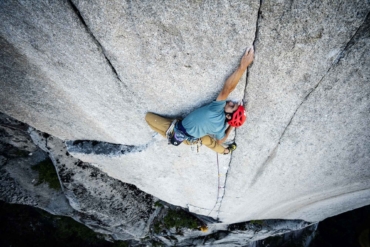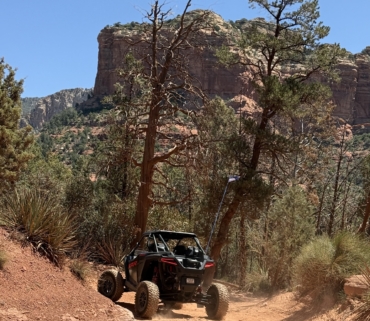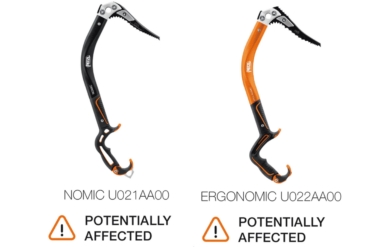With support from Access Fund and Eastern Kentucky University, a new study shows the positive economic impacts of climbing tourism.
About 37,000 climbers bring $4.5 million annually to Lander, Wyo., located near many popular crags.
That’s the message from a study released Saturday that measures climbers’ economic impact in Central Wyoming. The Central Wyoming Climbers’ Alliance (WyoClimbers) commissioned the study, which received support from Access Fund and was carried out by researchers from Eastern Kentucky University.
Over the last 30 years, Lander has grown quickly as a national and international climbing destination. With more rockhounds arriving every year, WyoClimbers wanted to measure the sport’s economic impact on the area.
“Sustainable access to Lander area rock climbing is of significant economic value to local businesses and jobs,” WyoClimbers wrote in a press release.
In other words, if the Lander area wants to keep the money flowing, they’ll need to ensure continued access to Wyoming’s world-class climbing areas, the group said in a press release.
Economic Impact Study Details
Of the 37,000 climbers visiting Lander each year, about 80% come from outside Fremont County, the study’s focus area.
The $4.5 million spent by climbers each year goes into lodging, transportation, retail, and food purchases, the study said. Climbers also spend an additional $1.1 million in Wyoming just to get to and from Fremont County.
The study lays out several ways of expressing that financial impact. For example, the spending of climbers supports $1.7 million in wages for local workers, researchers found. It directly equates to 51 jobs in the study area, mostly “unskilled jobs, which results in dependable jobs for local workers,” WyoClimbers said in the release.
Government coffers benefit as well, receiving about $710,000 in taxes at the county, state, and federal levels. Climbers actually living in the Lander area spend as much as $36,000 each year.
Ver esta publicación en Instagram
The economic benefits to the Lander community will continue, WyoClimbers said. The only thing needed to maintain it? Climbing access. That means upkeep of trails and climbing hardware as well as sustainable recreation practices.
James Maple, a Ph.D. from Eastern Kentucky University and one of the study’s authors, made a video (see above) laying out his findings. He said the recipe for continued positive economic impact is simple.
“As long as climbers have access to climbing in Lander and Fremont County, this economic impact should continue to come in every year,” Maple said. “If the climbing is available, the climbers will come.”
For information on this study and local climbing access in Wyoming, visit WyoClimbers online.








